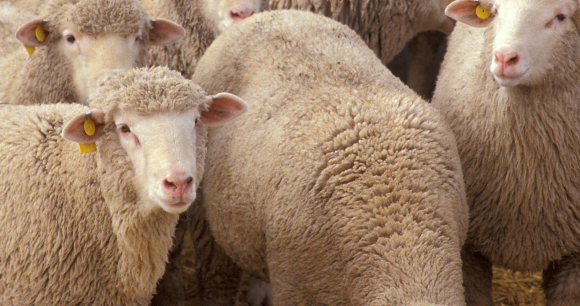
Washington, DC—The Animal Welfare Institute (AWI) is calling on Congress to permanently revoke all research funding of the USDA’s Meat Animal Research Center (MARC) in Clay Center, Nebraska. The request follows a July 2017 inspection report—recently published on the USDA’s website—that details multiple instances of direct non-compliant veterinary care and animal handling resulting in significant animal suffering. This appalling inspection further validates allegations brought to light in a January 2015 New York Times investigative story about the facility.
“MARC is one of the most high profile cases of research on animals gone awry to date,” said Cathy Liss, AWI president. “Despite over two and a half years of adverse publicity and multiple site visits, the facility continues to severely mistreat the animals under its care. After the revelations about MARC surfaced in 2015, Congress sent a strong message that animal abuse at federal agencies will not be tolerated. We are now asking Congress to permanently revoke MARC’s funding and work toward closure of the facility.”
The July 11–13 inspection report summarizes the findings of four inspectors, including the regional director. It details outrageous incidents and circumstances of animal cruelty, including
- an untreated lamb unable to bear weight on his right rear limb;
- two lame bovines who were left untreated;
- observed medical issues during the inspection that were not documented nor conveyed to the attending veterinarian;
- several animals in the feedlot area showing symptoms of severe heat distress—including open mouth breathing with tongue protruding, excessive drooling, and increased respiratory rate; and
- pigs who were lame and pigs who had sustained numerous, untreated fight wounds on their head, neck and bodies because no attempt was made to minimize aggression and competition during co-mingling.
Upon release of the New York Times article, which described indefensible acts that have taken place at MARC over the past several decades, AWI wrote to former Secretary of Agriculture Tom Vilsack. In its correspondence, AWI recommended an immediate investigation with appropriate corrective action, including possible closure of the facility. Members of Congress also wrote to the secretary to decry the deplorable conditions at MARC.
Vilsack responded by convening a four-member independent panel to examine MARC’s policies, procedures, animal handling and research oversight—but in an announced site visit, not an unannounced inspection. Not surprisingly, the panel found “no evidence of poor animal handling, animal abuse, or inadequate veterinary care.”
Congress was unimpressed with this cursory review, and responded by withholding 5 percent—$57 million—of funding from the Agricultural Research Service (ARS), citing its “continue[d]...deep disappointment” with the USDA’s response. Five months later, Congress expressed continued frustration with the USDA, stating in report language accompanying the omnibus spending bill that “despite having nearly a year … the Department has provided a wholly inadequate public response to the allegations of animal mistreatment at MARC and it has been delinquent in providing necessary information and updates to the Committees.”
A subsequent, heavily redacted audit by the USDA Office of the Inspector General (OIG) concluded that the ARS provided insufficient oversight of animal welfare at MARC; nonetheless, the OIG claimed it “did not find evidence indicating a systemic problem with animal treatment and care.”
However, the inspection report made public today clearly demonstrates there is a systemic problem at MARC—and apparently has been for years. Because of this, AWI—in addition to asking Congress to permanently revoke research funding for MARC—is urging all federal agencies conducting animal experimentation to be subject to unannounced inspections and oversight by the USDA. Currently, the Animal Welfare Act (AWA) exempts federal research facilities from such oversight, placing AWA compliance with the federal agency conducting the research—an enormous conflict of interest.
“We have a terrible situation already because the protections offered by the Animal Welfare Act are denied to farm animals used in agricultural research,” added Liss. “The animal suffering is intensified when federal agencies are required by current law to self-police, making them virtually unaccountable for the suffering they inflict. MARC is a clear example of this broken system. Funded by taxpayer dollars, these agencies need to be held accountable.”
Amey Owen, (202) 446-2128, [email protected]